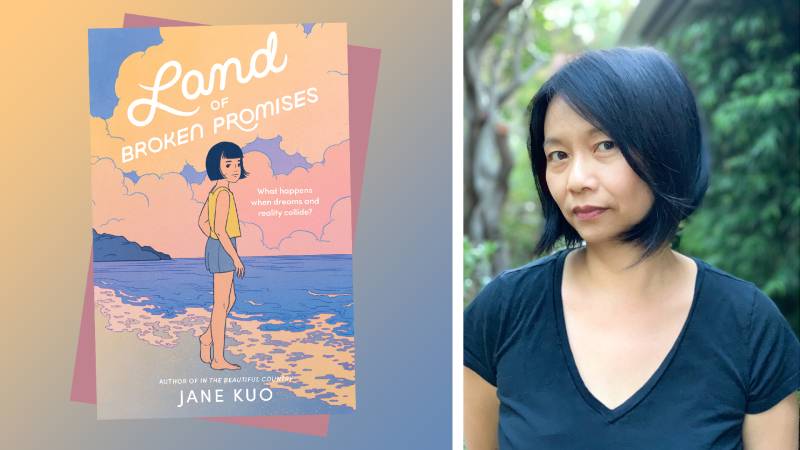It can be hard to make your way to a new country, but sometimes even harder to stay in it. Both of these travails are the subject of Chinese and Taiwanese American writer Jane Kuo’s most recent middle grade novels. In 2022 she released In the Beautiful Country, a story of a Taiwanese family who leaves their home country to relocate to the United States — referred to in Chinese as ‘meiguo,’ literally, “the beautiful country.” The story is set in 1980 and told from the first-person perspective of their 10-year-old daughter Zhang Ai Shi as she experiences the highs and lows of forging a new life and identity as Anna Zhang. In a town northeast of Los Angeles, her parents have poured all of their life savings and hope into owning and operating a fast-food restaurant.
Now, Kuo is following up on Anna’s story with Land of Broken Promises, set in 1982, nearly two years after the events of In the Beautiful Country. Land of Broken Promises charts the rich emotional landscape of a now-11-year-old Anna and her parents — whom she refers to only as Ma and Ba. The family thought they had settled into a routine in America only to one day realize that their immigration visas had expired. The news hits like an earthquake, destabilizing the household as they process the guilt of forgetting to renew something so important, and the swamping fear of what it means to live in the country illegally, their young daughter now undocumented.
The story is close to home for Kuo, who lives with her family in the Bay Area but once lived the experience she is writing about. For a period in the 1980s Kuo was an undocumented immigrant. “Anything that’s really significant, any emotional resonance in the book, all of those things are true,” Kuo explains. “I just move dates around.”

But the dates are significant too; Kuo’s writing is informed by both her personal experience and real historical events. In 1986 then-president Ronald Reagan signed the Immigration Reform and Control Act into law, extending temporary legal status to millions of undocumented people in the country — including Kuo and her family — so long as they had entered the country before 1982.
“In the story it’s really just a year in the girl’s life,” Kuo says of the book’s timeline, “but I’ve condensed down probably five or six years of experience.” Though fictional, Anna’s story grants readers entry into a very real circumstance for undocumented people: living in an indefinitely liminal space while waiting to get their immigration status approved, renewed or denied.



